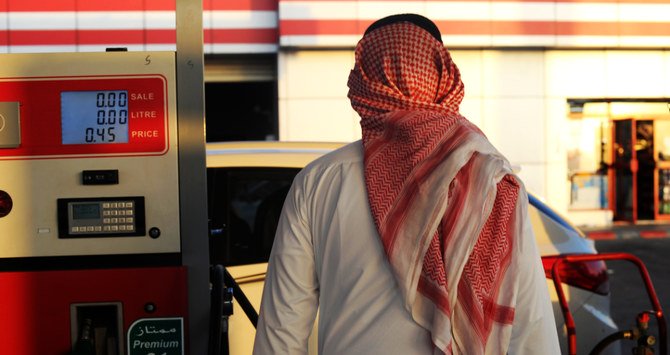
- ARAB NEWS
- 18 Jul 2025

Is there some faint light filtering through at the end of the oil-price tunnel? A recent video forum of energy experts run by information group Gulf Intelligence raised that possibility.
It may seem contrarian to ask that question in the wake of the halving of crude prices over the past fortnight amid huge planned increases in output from Saudi Arabia and Russia, even as global demand collapses because of the hit to the global economy from the coronavirus disease outbreak.
But some analysts, perhaps desperate to see any light in the current situation, believe that crude may have hit something like a floor in the mid $20 per barrel range, and could even, depending on a wildly fluctuating set of circumstances, rise back above $30 over time.
This feeling of mild optimism is by no means universal. If Brent crude dips below $20 a barrel the market momentum could become unstoppable, for a period, as it has done in other price-war situations decades ago.
There are some obvious reasons for this pessimism. The global recession brought on by the virus has caused the biggest sudden contraction in demand for oil in history. Some estimates put the decline at 10 million barrels per day (bpd) from a normal level of about 100 million bpd, which seems right given the big drops in world economic activity.
On top of that, producers — notably the big two of Saudi Arabia and Russia but also other notables such as the UAE and Nigeria — are going all out to increase supply for delivery over the next two months. Around 3 million barrels extra will be coming to market very shortly, analysts believe.
There is still the big possibility that prices could again fall dramatically. But perhaps the scenario is not as gloomy as it was just a few days ago.
Frank Kane
This raises all sorts of questions. If China and other big industrial powers are not burning crude, where will it go? The world’s storage tanks will soon be full, and there are not enough oil tankers on the market to act as floating reservoirs for any real length of time.
For some producers, especially the higher cost ones, the possibility of a serious “shut in” — closing oil production facilities — looms.
One obvious conclusion from this state of affairs is that the “shock and awe” policy -— cutting prices and boosting output — announced by Saudi Arabia after the collapse of the OPEC+ alliance is clearly having its intended profound effect.
The Kingdom’s strategy is to win back market share from other producers in a short, sharp campaign that will effectively shake out the higher-cost producers and monetize its biggest asset on a faster timescale than previously expected.
There is much to be said for this plan. It suits both the Kingdom’s needs for financial resources to fund its Vision 2030 diversification strategy, and the move away from fossil fuel usage before the middle of this century.
If Saudi Arabia gets the timing right, it would be the biggest energy producer with the lowest costs and growing market share just as the world is beginning to recover from the ravages of COVID-19. The Kingdom’s oil would be the resource to fuel global recovery, in effect an economic stimulus package for the post-virus world.
The other reason for some optimism on oil prices is that there are some tentative signs that the economy first and worst hit by the virus is showing some signs of returning to life. Cases in China have begun to fall, and large chunks of industry will soon be reopened. Another large economic power, Japan, is also reviving, having successfully controlled COVID-19 from the outset.
There are obvious caveats. The progress of the virus in south Asia and Africa are still not clearly understood and could yet come with a vengeance. Europe has clearly been ravaged, while the US is still in the early stages.
But the mere fact that experts are now talking about a Chinese economic rebound -— a V-shaped recovery in the third quarter -— is good news for the oil price.
It is still way, way too early to call the end of the oil price wars or the bottom of the crude market. There is still the big possibility that prices could again fall dramatically. But perhaps the scenario is not as gloomy as it was just a few days ago.
• Frank Kane is an award-winning business journalist based in Dubai. Twitter: @frankkanedubai